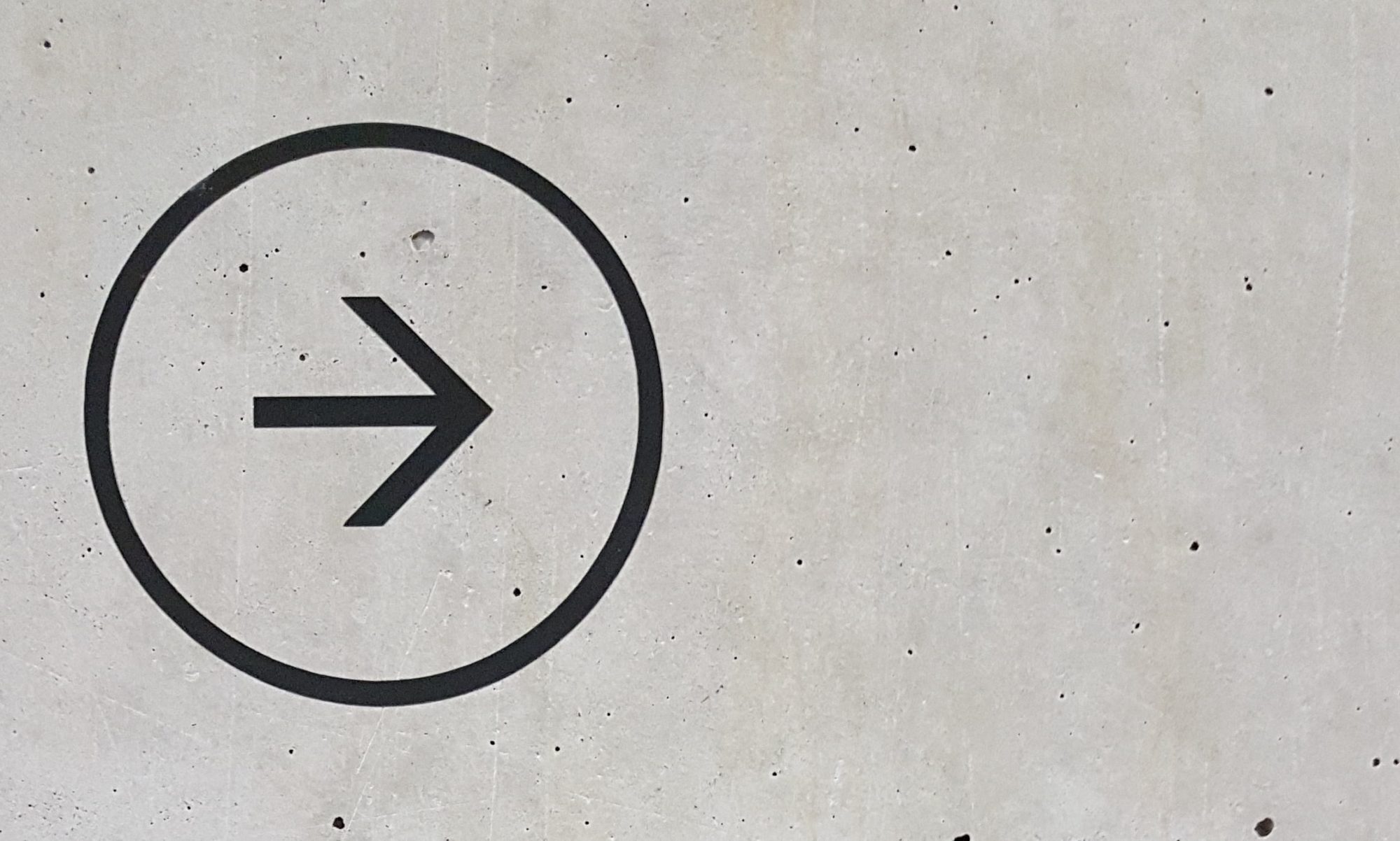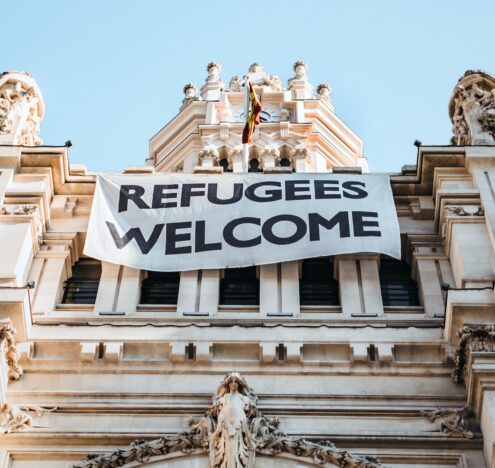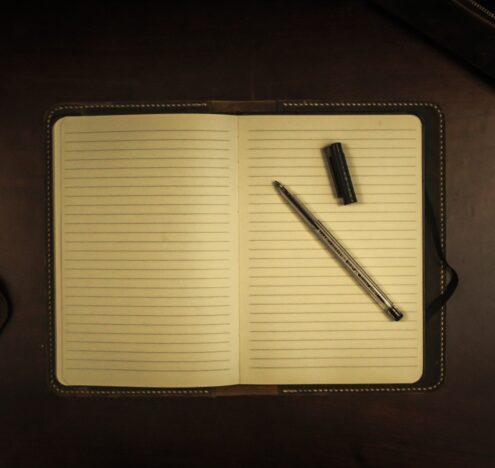America isn’t out of the woods yet. The election of Joe Biden and Kamala Harris is a big step toward the healing we desperately need as a country — but just one step. Their tone will be a welcome dose of unity and decency, a far cry from the fear and loathing peddled by others. But they will step into a political arena just as dysfunctional and toxic as it was before we cast our votes, and they will try to govern a country where polarization and vilification long ago trumped the spirit of compromise and mutual respect. While many Americans danced in the streets at the election result, an almost equal number were horrified.
Breaking through the walls of antipathy that divide us is the great challenge of our time. In a way, it always has been. So long as we keep fighting each other in a no holds barred pursuit for political domination, we’ll never muster the strength to continue our 250-year journey toward a more perfect union; we’ll never be able to come together to effectively combat racial and income inequality, climate change, or the rise of authoritarianism. Learning to live and work with each other is the only way we’re going to live up to our country’s great promise. If we fail, the risk of violence is real and terrifying. It doesn’t have to be this way.
This is personal for me, as I suspect it is for most. The state I grew up in for the first eighteen years of my life, Indiana, was the first to hand its Electoral College votes to Trump last week. When I saw almost 60% of Hoosiers vote to reelect Trump just 12 years after the state voted for Obama, the overriding feeling I had was embarrassment. But I wasn’t embarrassed for the state — I was embarrassed for myself. I consider myself to be a Hoosier through and through, and yet in the years since moving away, my understanding of the bulk of fellow Hoosiers has seemingly evaporated. I’m in my own bubble, and they’re in theirs, and in so many ways — our beliefs, our needs, our values — we couldn’t feel more dissimilar. It’s deeply unsettling, feeling like I don’t understand a part of myself anymore. And hearing about how many families have been torn apart by partisan vitriol, I know I’m not alone.
Building respect and understanding starts in our local communities, with people we know but who may think differently. And we all have a role to play.
I don’t want to feel like I’m my own enigma anymore. I want to understand once more the people I grew up with, the people who will forever be a part of me. I don’t want them to view me, just because I see the world differently, as the enemy. Building respect and understanding starts in our local communities, with people we know but who may think differently. And we all have a role to play. We cannot just rely on our politicians to bridge our divides for us — we have to do it ourselves.
Everyone will follow their own paths to reconciliation. Here’s where I personally will start:
I’m going to set a positive example for my daughter. I’m going to be curious, ask questions of people who hold different views, and listen deeply to their responses. I’ll try to dig past the emotions and unearth the root reasons beneath them. I’ll stick to facts and respectfully point out falsehoods. Maybe I’ll learn something, shape their thinking, or discover a way to help. Or maybe I’ll just drive myself or others up a wall. But at the end of the day, we don’t need to agree; if we can just understand where the other is coming from, it’s going to be a lot harder to vilify each other.
I’m going to get more involved in my local community. Each new experience will open up my eyes more to the diverse needs of my fellow citizens. Serving in my childhood home town’s mayor’s office and my current county’s social services board gave me an opportunity to directly impact lives in ways big and small, and it reinforced my faith in government and the competency and passion of civil servants. I’ll seek out grassroots organizations working to combat hate and build mutual understanding and respect across communities.
I’m going to advocate for truth and reconciliation commissions. “Learn from your mistakes,” every parent tells their child; so too we must reckon as a nation with our flaws if we are to advance. A national commission on racial injustice in America would be invaluable, and we might be wise to start with locally-led, government-supported initiatives. My childhood hometown of Fort Wayne last year inadvertently stumbled into its own nascent reckoning with the scorched-earth displacement of Native Americans from the land where the town would form. More deliberate, widespread, and tailored conversations would allow communities to pursue their own necessary justice and understanding and build toward national reconciliation.
I’m also going to implore my elected officials to take bold steps to suck some of the air out of the blow horns of hate. A proposed national service program to encourage young adults to spend a year in military or civilian service is a common-sense way to foster shared experiences and should receive bipartisan support. Leaders should also look to better regulate social media outlets — without unduly infringing on freedom of speech — to make it more difficult for hateful messages to permeate society and easier to break out of our information bubbles. The more we can agree on a trusted set of news sources and reflection of reality, the more constructive conversations we can have. And a massive investment in our education system is part of the solution for bridging our divides and many other challenges we face. More structural proposed changes like abolishing the filibuster and the electoral college might have their time and place, but I fear that without first toning down the malicious discourse in America, they would only raise the political stakes. Still, the ideas demand serious consideration.
And finally, I’m going to put faith in America’s remarkable capacity for rebirth. I watched the election from Australia, and I heard commentators lament that America is “deeply broken.” We’re heading that way, but I don’t think we’re there yet. Alexis de Tocqueville wrote that the greatness of America lies “in her ability to repair her faults.” Time and again throughout our history, we’ve done just that, but not without extraordinary sacrifice and resolve over generations. We’ve sometimes succumbed to internal violence, and some have suggested that more violence is inevitable, but I refuse to accept that. Ratcheting down the rage and fostering a degree of mutual respect will take years of patience, turning the other cheek, and learning from our inevitable missteps. But it is hard work worth doing, for all of us. Together, let us prove Tocqueville right once more.
Ryan Karr is a parent, a neighbor, and a citizen of the United States of America.





















